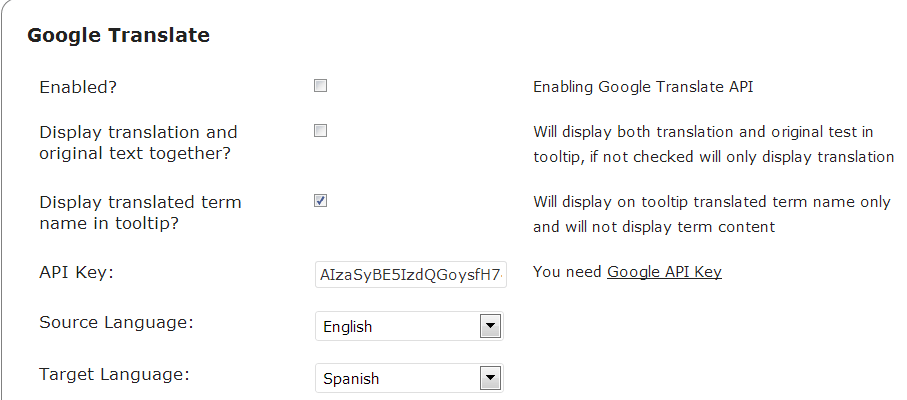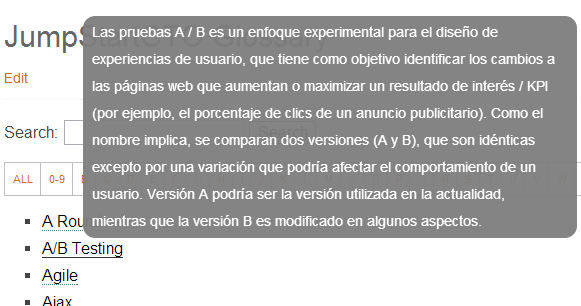Your website is likely customer’s first point of contact with your brand. Couple this with the globalization of eCommerce and optimizing it for different languages is essential.

Whether you enlist the help of translation services or a WordPress translation plugin, there are many benefits to a multilingual website.
April 2025 Offer – For a Limited Time Only:
Get WordPress Tooltip Glossary Plugin for 15% off! Don’t miss out!
The Advantages of Going Multilingual
Here are just a few of the benefits of translating your website content:
1. You Can Reach a Bigger Audience
Let’s start with the most obvious benefit: making your site multilingual helps you to reach a bigger audience.
You might be surprised to learn that only 25% of all internet users speak English. If you concentrate all your efforts into an English language website, you’re leaving a huge share of your potential market untapped.
By providing your site in multiple languages you’re reaching out to that whopping 75% of online browsers who aren’t native English speakers, opening up your business (and endless possibilities) to them.
2. It Can Improve Conversion Rates
If you’re an English speaker, the chances are if you click on to a website that is entirely in Chinese or German you’re not going to around, let alone long enough to make a purchase. Having your site translated into multiple languages means that you’ll reduce bounce rate and increase conversions. And we’d hazard a guess that that is the goal of all eCommerce store owners.
3. It Gets You Ahead of the Competition
Imagine you have a potential customer in France. They’re native to the country and don’t speak any languages besides French. They have two websites lined up selling the thing that they need. Both are based in the US, but one is entirely in English, and the other is in French. All the data tells us that they’re more likely to make a purchase with the store that lets them browse in their native language. So, which store would you rather be?
By translating your website you gain that edge over your competition. Fail to be sensitive to international customers needs and you run the risk of handing sales over to your competitors.
4. It Improves Your SEO Credentials
The success of an online store can hinge on SEO. Having your website translated into multiple languages can help boost your SEO credentials.
For anyone unfamiliar, SEO stands for Search Engine Optimization and refers to where your website ranks on search engine results pages (SERPs). Think Google and Bing results when you search for a word or phrase.
Experiments conducted by experts in SEO have shown the huge benefits that a multilingual site can have in boosting traffic.
5. Personalization and Localization Improves Customer Experience
They might just seem like business buzzwords, but personalization and localization of content is hugely important to customer experience.
Personalization is making the experience tailored to the individual shopper and localization is all about switching up content so it’s relevant to customers in a certain geographical location. Translation of website content plays a large role in this.
Shoppers don’t want to feel like just another number on a chart, and providing a personalized, localized experience can help to make your business more personable. This in turn improves trust and can keep customers coming back for more.
6. It Boosts Your Brand Image
Your image and reputation is everything when your business is purely online. Having a multilingual website gives the image of a truly global brand. It suggests complexity, credibility, and sophistication, and this can inspire trust in you and what you do. What more could you want?
WordPress Translation Plugin from CreativeMinds
If we’ve convinced you of the benefits of a multilingual site, you might be interested to learn more about the Glossary Tooltip plugin from CreativeMinds. Our professionally made plugin comes with multilingual capabilities to translate your website and help you reap the benefits listed above.
It features multilingual support from sources such as Google Translate, the Merriam-Webster Dictionary, and Wikipedia.
Here is a quick look at the Google Translate API settings:

Here you can define how the translation feature works.
Below is an example of how tooltip content is displayed when it’s translated into the target language of your choice.

Follow the link below to find out more about the plugin and its multilingual capabilities.


